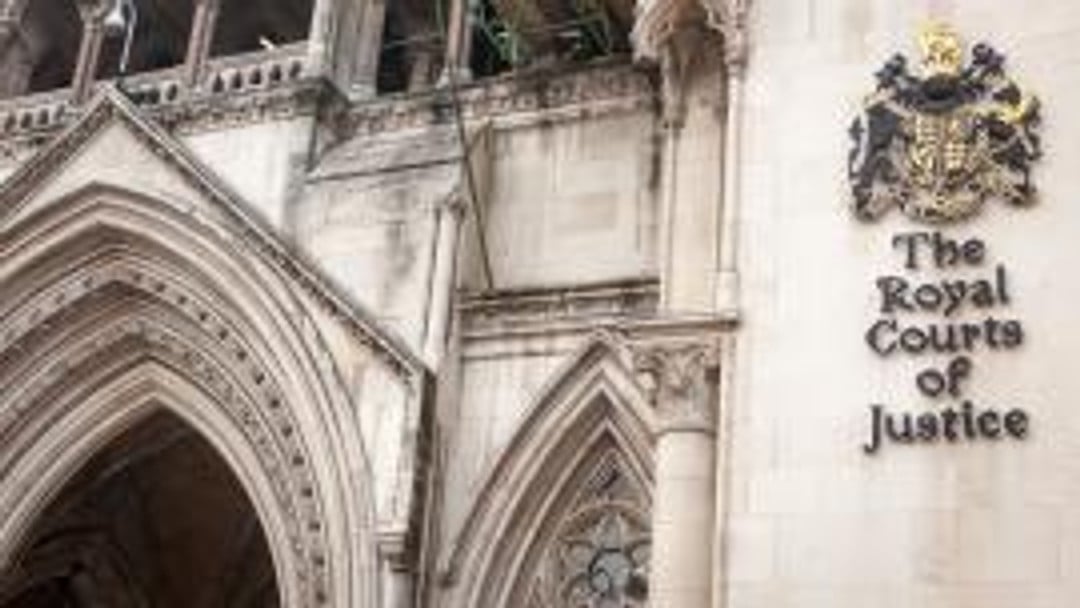Law firm not liable to non-client third party

Professional negligence claim was time barred and with no real prospect of success, court rules
West End law firm Harcus Sinclair has successfully defended professional negligence proceedings brought by a non-client third party in the High Court, with the judge declaring the claim statute barred with no real prospect of success.
The claimant, Trilogy Management, was the trustee of three out of eight new charitable trusts set up in 2004 by three of the eight children of a deceased businessman following a dispute over his will. The settlement of the dispute included an $80m endowment from a Jersey investment company to the eight trusts.
Trilogy argued that Harcus Sinclair partner Keith Bruce-Smith made amendments to the company’s articles of association without instructions from his client, the trustee of the head charitable trust. This, they said, caused them significant financial loss.
Neither they – nor other interested parties including the eight children, the Jersey company and the trusts – had been made aware that a change in the wording before the final signing meeting was done without instructions, they claimed. Because this alleged concealment was only discovered after the statutory deadline for bringing a professional negligence case, they said, the court should allow the case to proceed.
However, ruling in Trilogy Management v Harcus Sinclair, the High Court said even if the parties’ attention had not been specifically drawn to the changes, there had been no concealment that justified an extension of the time limit.
It was, Mrs Justice Rose said, ‘overwhelmingly likely that [any alleged breach of the duty of care] would have been discovered immediately or at any rate well within a year or so of its commission’.
She added that although contemporaneous notes were patchy and there was no reliable record that the amendment had been discussed, ‘even if the change was not mentioned, and even if it was not indicated by any form of highlighting in the documents used at the meeting, I do not accept that that amounts to deliberate concealment in the extended sense described in section 32(2) of the Limitation Act 1980’, Rose J said.
The judge vindicated Bruce-Smith’s position, saying it was impossible to contend he had deliberately concealed from the two brothers, who were executors of the will and directors of his trustee client, and who were present at the meeting, that he was making changes without their instructions.
‘Mr Bruce-Smith’s conduct was done in plain sight of his client and the lawyers advising [the two brothers] in their capacity as executors and the brothers were in close contact with [the lead daughter in the claim] about the wording of the document,’ she said.
Even if there had been a deliberate breach on Bruce-Smith’s part, she concluded, there was no prospect of the claimant establishing at trial that it could not have been discovered before the end of the limitation period.
Rebuffing an alternative argument based on section 14A of the Limitation Act, the judge said the daughter’s own evidence showed she had the document with the additional words in her hands. ‘If she or her solicitors had read the draft properly they would have spotted the additional words and could have asked [one of the brothers] why they had been included.’
Jon Beresford, a litigation partner at Harcus Sinclair, said that cases where solicitors owe a duty of care to persons other than their clients are ‘exceptionally rare’, citing Lord Goff in White v Jones. In that case, disappointed beneficiaries tried – and succeeded – to sue a solicitor who had drafted the will for the testator.
Some situations are not so clear-cut. Solicitors acting for trustees, for instance, sometimes accept some responsibility to beneficiaries. This can be the case where, although instructed by the trustees, a solicitor is asked to advise them in ways explicitly favourable to the beneficiaries. ‘But the extent and limits of the duty ought to be set out clearly in the client care letter, and the position made clear to the beneficiaries,’ Beresford warned.
‘Our case couldn’t be a clearer example of someone not accepting responsibility for anyone other than his client, because all parties had their own solicitors.’
Harcus Sinclair acted for a charitable trust that owned the shares in a Jersey investment company in the course of a probate dispute between the children of the deceased over the certainty and validity of a provision in the will.
After all the parties involved, including Harcus Sinclair’s trustee client, agreed to a memorandum of understanding, the firm amended the company’s articles of association so that each of the eight new charitable trusts would be guaranteed a minimum income from the company every year.
An initial draft was circulated. An addition was made to distribute dividends based on profits in the latest financial year. This had the effect, Trilogy claimed, of substantially reducing the income flowing from the head trust to the eight new charitable trusts. Trilogy’s case was that, had the words ‘of that year’ not been added, dividends would have been based on the company’s significant accumulated profits.
Further litigation took place in Jersey more than nine years later, which resulted in the offending provision being removed from the agreement, so that all eight new charitable trusts have now received additional dividends.
Trilogy Management, the trustee of three of the eight new charitable trusts, subsequently started negligence proceedings against Harcus Sinclair, seeking damages for unpaid dividends and its costs incurred in pursuing the Jersey litigation.
Jean-Yves Gilg is editor-in-chief at Solicitors Journal
jean-yves.gilg@solicitorsjournal.co.uk
@jeanyvesgilg

